Search
Search Results
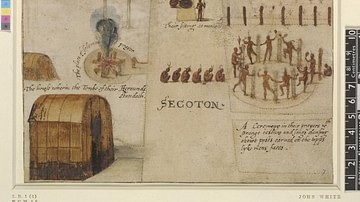
Definition
European Colonization of the Americas
The European colonization of the Americas was the process by which European settlers populated the regions of North, Central, South America, and the islands of the Caribbean. It is also recognized as the direct cause for the cultures of the...
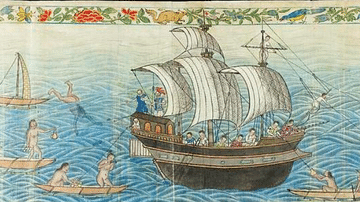
Definition
Manila Galleon
The Manila galleons were Spanish treasure ships which transported precious goods like silk, spices, and porcelain from Manila in the Philippines to Acapulco, Mexico, between 1565 and 1815. The Atlantic treasure fleets then shipped some of...

Definition
Jan van Eyck
Jan van Eyck (c. 1390-1441 CE) was a Netherlandish Renaissance painter who was famous in his own lifetime for his mastery of oil painting, colouring, naturalistic scenes, and eye for detail. Amongst his masterpieces are the 1432 CE Ghent...
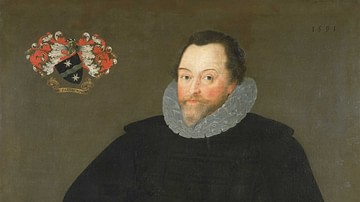
Definition
Francis Drake
Sir Francis Drake (c. 1540-1596 CE) was an English mariner, privateer and explorer who in 1588 CE helped defeat the Spanish Armada of Philip II of Spain (r. 1556-1598 CE) which attempted to invade the kingdom of Elizabeth I of England (r...
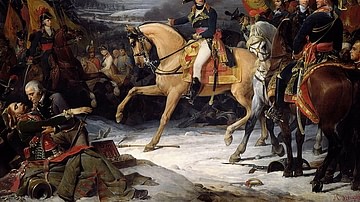
Definition
War of the Second Coalition
The War of the Second Coalition (1798-1802), part of the broader French Revolutionary Wars, was the second attempt by an alliance of major European powers to defeat Revolutionary France. The Second Coalition, which included Russia, Austria...
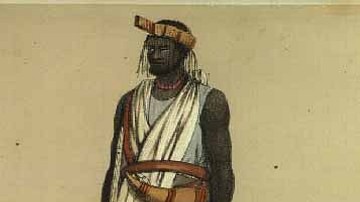
Definition
Wolof Empire
The Wolof (aka Jolof or Djolof) Empire was a state on the coast of West Africa, located between the Senegal and Gambia rivers, which thrived from the mid-14th to mid-16th century CE. The empire prospered on trade thanks to the two rivers...
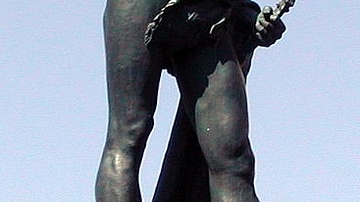
Definition
Viriathus
Viriathus (c. 180-140 BCE) was the leader of the Lusitani in their war with Rome. In 150 Viriathus escaped the Roman massacre and enslavement of Lusitani who had surrendered peacefully. Viriathus continued to fight in the resistance and rose...

Image
Portuguese Colonial Empire in the Age of Exploration
A map illustrating the evolution of Portugal into a global colonial power following the period of European exploration of the 15th century. The Portuguese Empire began in the fifteenth century, with the kings of Portugal seeking trade routes...
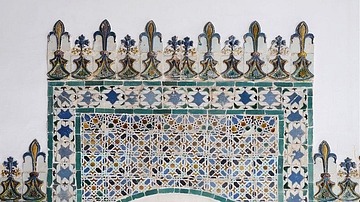
Image
Arab Room Tiles, Sintra Palace
Islamic ceramic tiles in the Arab Room in the Sintra palace (Palácio Nacional de Sintra), Portugal. King Manuel I of Portugal (r.1495-1521 CE) imported azulejos (glazed ceramic tiles) from the Alhambra palace in Granada, Spain to decorate...
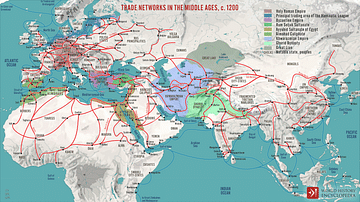
Article
Global Trade in the 13th Century
In the 13th century, astonishing quantities of spices and silk passed from the Far East to Europe. Exact amounts are not known, but spice popularity in both cuisine and medicine reached its historical peak during the Middle Ages in Europe...